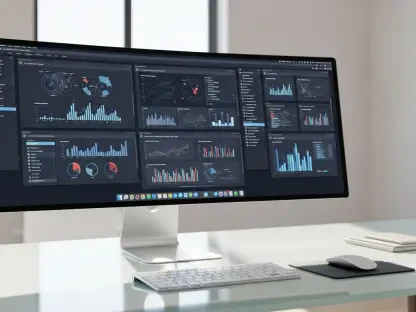In today’s interview, we explore the dynamic world of venture capital and startup funding with Vijay Raina, a respected specialist in enterprise SaaS technology and software design. With insights into the strategic focus on areas like enterprise AI and cloud infrastructure, Vijay shares his expertise on the nuances of pre-seed investment, challenges and opportunities in the tech startup realm, and the evolving trends in AI and seed-stage investments.
Can you tell us more about Active Capital and its focus on enterprise AI and cloud infrastructure startups?
Active Capital is a venture firm that’s keenly focused on enterprise AI and cloud infrastructure. The firm zeros in on the pre-seed stage because that’s where the foundational DNA of a company is crafted. By supporting startups in these technology-driven sectors, Active Capital aims to invest in companies poised to reshape industries through next-gen AI capabilities and cloud solutions.
What inspired you to start a venture firm like Active Capital?
The inspiration behind Active Capital stems from my entrepreneurial journey. Having built and sold my own tech company, I recognized the importance of having early supporters who understand the challenges of starting a business. This unique perspective drives the firm’s mission to offer early-stage capital to startups led by other entrepreneurs who’ve faced similar challenges.
How does your background influence the way you operate Active Capital?
My background heavily influences Active Capital’s operations, primarily through a founder-first approach. Having walked the path of a tech entrepreneur, I know firsthand the value of strategic capital and mentorship. This experience allows us to not only invest funds but also offer meaningful guidance to startups navigating the complex tech landscape.
Could you explain the significance of pre-seed investment in the lifecycle of a startup?
Pre-seed investment is crucial because it lays the groundwork for a startup’s future. This stage is where initial ideas are shaped into viable products and the company’s culture is developed. By supporting startups at this early phase, investors help build the foundational DNA that will drive long-term success.
What challenges do pre-seed investors commonly face, and how do you overcome them?
Pre-seed investors face challenges like high risk and uncertainty, given the nascent stage of the companies. To overcome these, it’s vital to form strong, trusting relationships with founders and to be discerning in choosing those with clear vision and resilience. Cultivating a network of supportive LPs who believe in the long-term potential of startups also mitigates these challenges.
What makes pre-seed investing fun and foundational for you?
Pre-seed investing is exciting because it’s about supporting the genesis of innovative ideas. Watching an idea evolve into a company and helping shape its future is incredibly rewarding. This stage is also fun because it involves closely collaborating with passionate founders and creating a long-lasting bond that contributes to their journey.
You mentioned there’s a huge market opportunity in pre-seed. Can you elaborate on this?
The huge market opportunity in pre-seed lies in the scarcity of focused investors at this stage, especially outside traditional tech hubs. Many successful companies today started with a pre-seed round and never needed further financing. By identifying these potential high-performers early, we have the chance to support companies that might redefine their sectors.
Could you share some of the notable successes from Active Capital’s portfolio?
Active Capital has had several notable successes, such as RemoteTeam and VidGrid, which were acquired by industry giants. Other portfolio companies like ProsperOps and Teleport have shown remarkable growth and innovation, validating the impact of our early-stage investments in transformative startups.
What kinds of startups does Active Capital look to invest in, and why?
We look for startups led by technical founders with a keen understanding of their domain, especially those developing AI-driven solutions or cloud infrastructure. This focus is because these sectors promise significant industry shifts and present opportunities for deep, technology-based innovation that can create robust market opportunities.
How does the firm decide on the check size when investing in pre-seed rounds?
We decide on check sizes by evaluating the startup’s roadmap and capital requirements, typically ranging from $500,000 to $1 million. The intent is to provide sufficient funds to cover the startup’s critical early-stage milestones and help them reach a position where they can scale effectively or attain profitability.
Can you discuss the trends you’re observing in AI and seed-stage investments?
There’s an undeniable trend of AI becoming central to new ventures. Vertical software companies using AI are going deeper into their niches than ever before, fundamentally changing their markets. There’s also a trend of founders adopting a bootstrap mindset, prioritizing efficient growth over rapid scaling, influenced by the practical capabilities AI now affords.
What role do AI and vertical software play in your investment strategy?
AI and vertical software play a pivotal role in our strategy as they represent the frontier of technological advancement. We aim to support companies that harness AI to innovate and redefine industry standards. Our investments in vertical software seek to capture the transformative potential of AI across specific domains, enabling deeper engagement and more specialized solutions.
Why do you believe there’s a resurgence in bootstrapped mindsets in the pre-seed stage?
The resurgence in bootstrapped mindsets is likely a reaction to past funding cycles that prioritized scale over sustainability. Today, founders are more mindful of operational efficiency, driven by lessons learned from previous market fluctuations and the innate efficiency AI can bring to business processes, leading them to focus on sustainable growth and profitability.
How does being based in Texas influence Active Capital’s operations and deal sourcing?
Being based in Texas affords us access to a diverse range of startups outside the mainstream innovation hubs. Texas, especially San Antonio, offers a supportive community and a unique perspective on entrepreneurship. Our location encourages us to engage with a broader market and source deals that might otherwise be overlooked.
What do you think about the Texas startup community and its support for entrepreneurs?
The Texas startup community is incredibly dynamic and supportive. It fosters innovation through various entrepreneurial resources and networks, creating a thriving ecosystem for startups. This community not only offers support but also diversity in ideas and perspectives, which is invaluable for fostering groundbreaking business models.
Why is it significant to maintain a small fund size instead of scaling up your Assets Under Management (AUM)?
Maintaining a small fund size aligns with our commitment to pre-seed investment. Larger funds necessitate larger investments, which aren’t suited to the early stages we focus on. A smaller fund allows us to remain disciplined, deliver focused attention to each investment, and stay true to our mission without diluting our core strategies.
How did you approach fundraising in the current economic climate?
We approached fundraising by emphasizing our track record, focusing on relationship building, and making a deliberate decision not to scale our AUM. This approach, coupled with patience and transparency about our goals, helped us earn the trust and support of like-minded investors, even in a challenging economic environment.
Why do you have a preference for raising funds from founders, operators, and entrepreneurial families?
Raising funds from founders and entrepreneurial networks ensures alignment of values. These investors understand the entrepreneurial journey intimately and are more likely to support our strategic vision. Their involvement also brings a wealth of experience and potential synergies with our portfolio, driving mutual growth and success.
Why do you believe small funds perform better than big funds?
Small funds often perform better because they can remain agile, make quicker decisions, and focus on the quality rather than the quantity of investments. This focused approach allows us to capitalize on niche opportunities and cultivate deeper relationships with startups, ultimately leading to greater innovation and return on investment.
How does being in line with the promises you made to investors impact your relationship with them?
Honoring commitments to investors is paramount to building trust and credibility. Delivering on promises solidifies our reputation, fostering long-term relationships. This transparency and reliability not only enhance investor confidence but also reinforce our firm’s integrity and alignment with the values we hold dearly.
Do you have any advice for our readers?
For aspiring entrepreneurs, remember that resilience is as important as innovation. Focus on strong fundamentals, build genuine relationships, and stay true to your vision. The journey is as much about adapting to challenges as it is about pursuing success. Embrace learning, seek mentorship, and let persistence be your guide.









